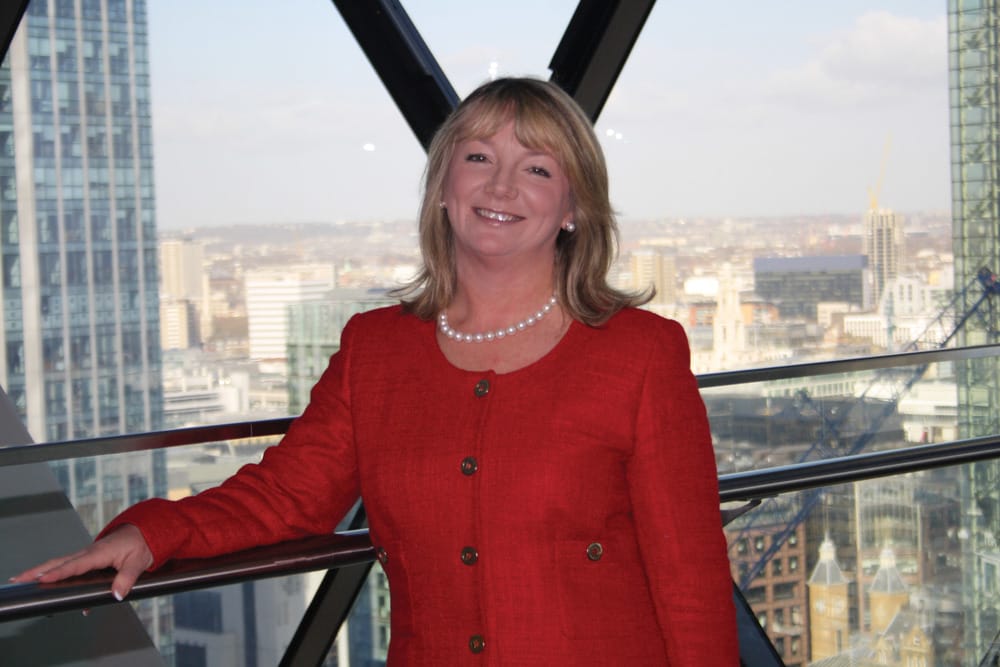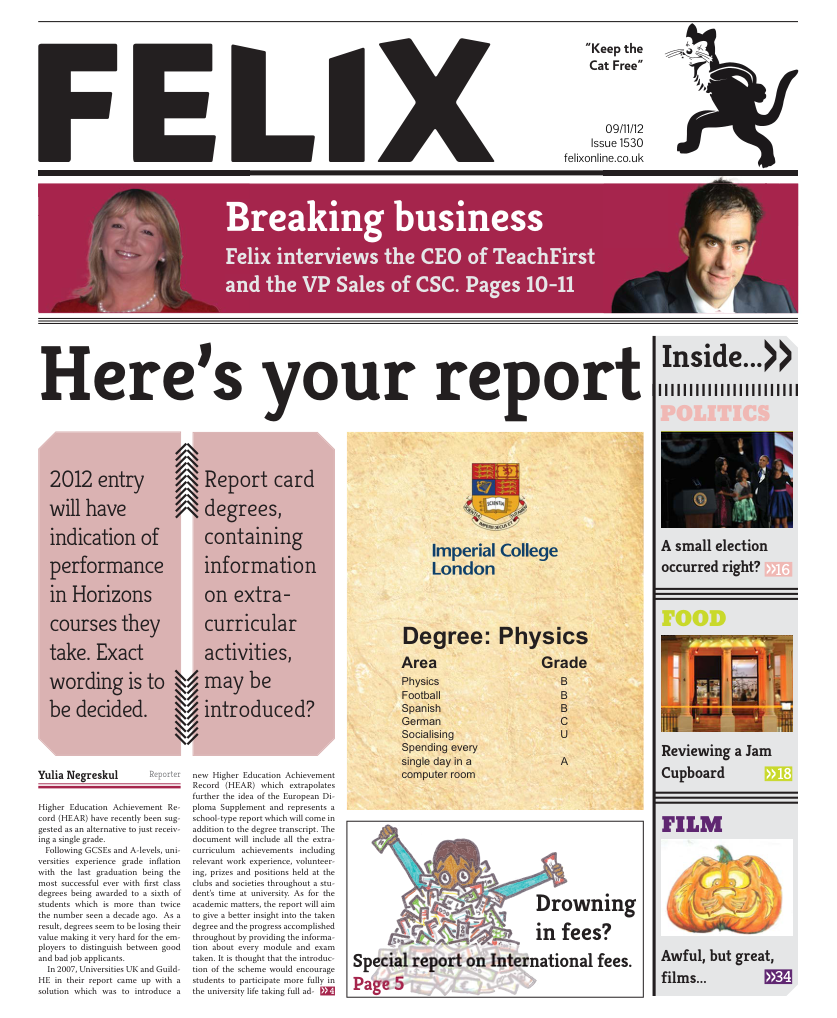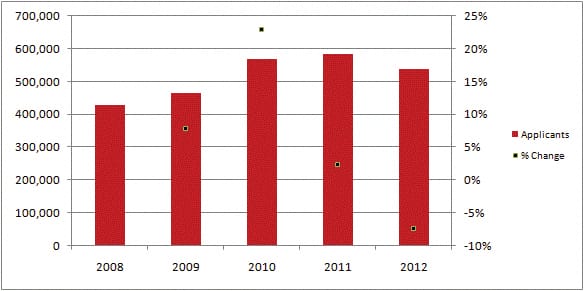A view from the top
Alice Yang interivews Amanda Brumpton, CSC UK&IR, VP Sales

Undoubtedly one of the most recognised modern buildings in the UK, The Gherkin (officially known as 30 St Mary Axe) is magnificently impressive from the outside, yet even more so from the 19th floor up. The view of London from such a height is incredible, and on a clear sunny day there is more than just a pang of jealousy as Amanda Brumpton welcomes me into her glass office.
Having finished University in the 80s, Amanda began her career at Guardian Royal Exchange following a summer internship with the insurance company in the actuarial department, before leaving for the Social Services.
“Big organisations are never boring, because there’s always something different you could be doing,” Amanda states.
Amanda’s career history also includes an impressive 10 years running large outsourcing accounts for IBM, and a brief stint at Japanese ICT company Fujitsu. Today, Amanda is atthe world leading IT company CSC where manages the operations of the company’s sales department based on a model she created from scratch.
“I’m good at realigning businesses that are not performing, and transforming business from one state to another. A lot people can strategize and create a plan, but it’s a different skill set to be able to take that plan and execute it. I’m all about execution.”
“I probably work at least 10-12 hours a day, 5 days a week, full on. Everyday is different, there’s some common themes: choosing which business opportunities to go after, helping my team shape the conversations they have with clients and meeting clients themselves to talk about their businesses.”
Yet despite such success, Amanda admits that she didn’t even know what sales was at university. “Selling is just a conversation with purpose. If you appear to be a brash shiny sales person, people back off. So actually, the art of selling is for people to not think it’s a sales conversation, but rather a business conversation about them and their issues.”
Changes in Technology
On the topic of issues, I question Amanda on how recent developments in the global markets both in terms of financial turmoil and improvements in technology are affecting her role.
“There’s been a lot of changes over the last 15 to 20 years, but the pace of change is speeding up exponentially.
What’s happening is that the way you get IT services at home is tripping over into what we call the “enterprise space” of big companies, something we call “consumerisation”. The challenge now is keeping things secure and complying with regulations in order to protect people’s data and client information.
This has caused a big change in the way companies operate their services, but it also offers a huge opportunity for them to become more flexible in how they deliver front line services and internal operations to their customers.
Our job is to help our customers understand how they can get maximum value out of these opportunities whilst still delivering all of their obligations from a regulatory perspective.”
Being “superwoman”
Having covered how the company deals with its challenges, we turn to talk about how Amanda deals with the challenges in her personal life.
“The biggest challenge is how to balance being a working mum and wife with the demands of the job, and try and be successful at it all.
As women, we have the natural tendency to want to be the best at everything; we want to be the best mum, best wife, and the best in our jobs, so we push ourselves really hard to be “superwoman” and it just isn’t possible to do everything.”
“There are some stereotypes that make the bar really high about what is perceived as the right thing. I think the biggest challenge is learning to be content with the choices you’ve made, to forgive yourself for the fact that you’ve got to make compromises, and not carry this burden of guilt around trying to be superwoman, because frankly, you’ll burn out.”
In regards to the compromises she’s had to make, Amanda refers to when she chose to return to work just 4 months after having twins.
“At times I’ve thought “I’m not doing this anymore, I want to stay at home with my sons”. But for me, I was the main breadwinner so I needed to work and I also wanted my career – I’ve learnt to accept that the choice I made doesn’t make me a bad mother, but it isn’t always easy.”
Managing Success
“I think today, men and women expect both parties to work. There’s fewer and fewer stay-at-home-mums, but we still get hit with all these stereotypes – everything in the media and on TV, even fairy tales you read your children – working women don’t match the model.”
“I learnt the hard way that whilst some men like the lifestyle that comes with success, they are very competitive and sometimes can’t cope with the feeling of having a lesser role. But has this stopped me in my career? No, because I enjoy what I do, I’m competitive, and I push myself to succeed.”
“You’ve got to learn how to manage success, but fundamentally, what I get enthralled by are the roles and their challenges. Work doesn’t define me, but it’s a big part of who I am.”
Given that work plays such an obviously large part in her life, I question whether Amanda feels that a glass ceiling exists. After a good laugh at the irony of such a question being posed from inside the Gherkin, she replies “I can’t see it and I’ve never hit it – but I think in other companies it’s possible, and the lack of senior female executives across business demonstrates that there are issues.”
“You’ve got to be careful that you stay true to yourself and your values, that you don’t try and be a bloke – women are different andthat’s important for business and for ourselves.”
“For example, I always wear colours, I have blonde hair, and I wear my jewellery – I subconsciously emphasise all the time that I am a female. I used to live in dark trouser suits and I don’t now; I live in a business world of men in dark suits, but I don’t need to emulate that to be successful. Women bring different skills and styles, and its very valuable in business, particularly women in male dominated environments because we’ve a different kit bag of skills and interact with people differently.”
80:20
Continuing, Amanda says, “psychologically if there’s an opportunity for progression, women naturally think of all the reasons as to why they can’t do that. They may have 80% of the skills nailed down, but they’ll think of the 20% they can’t do. When a man looks at the same thing, he naturally looks at all the things he can do, and even if he’s only got 20% of the skills required, he will probably apply for the role if he wants it and really go for it.
Women don’t push as hard, we don’t have conversations with our bosses about our next role and our career development plan. But, if you sit and wait, you get passed by. It’s our psyche we have to manage in order to progress rather then the company holding us down. If you’ve got the skills for the job, you should go for it.”
Read more at: www.title-mag.com










